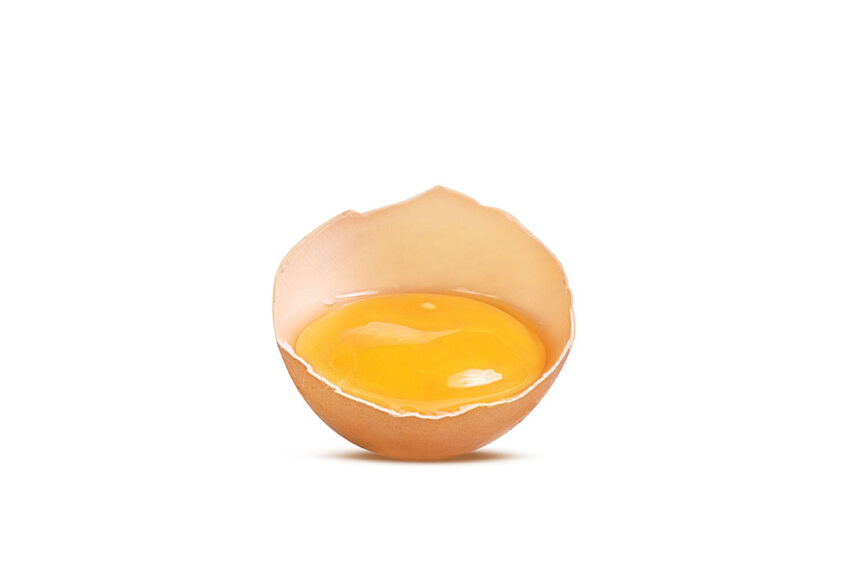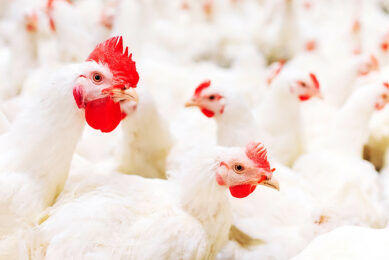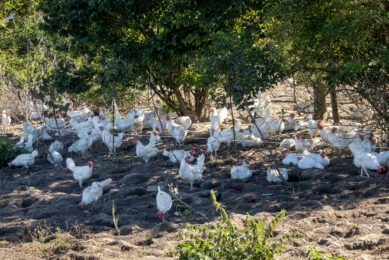Feeding orange maize for orange yolks

Consumers in various countries prefer yolks with an intense golden orange colour. Yolk colour can be influenced by feeding biofortified high carotenoid orange maize.
Studies show that consumer preferences may differ, but people in most countries prefer yolks with an intense golden-orange colour as it is associated with better quality and a more intense taste.
It is known that hens are not able to synthesize carotenoids, so we can conclude that the colour of the yolk is derived from the carotenoid pigments present in their feed. To achieve a deeper coloured yolk, some producers use specific feed additives that contain both yellow and red carotenoids from natural and artificial sources.
Orange maize in feed
The challenge with most artificially produced carotenoids is that, although they can increase the carotenoid levels in egg yolks, they inflict substantial costs on egg producers and do not provide the health benefits associated with macular carotenoids that are found in, for example, maize.
Feeding maize grain leads to natural variation in carotenoids that are associated with human health benefits such as visual and cognitive health.
Researchers from Purdue University in the US therefore compared the impact of adding biofortified high carotenoid orange maize (initially bred for human consumption) to standard yellow and white maize in laying hens to evaluate the effect on egg production, yolk pigmentation, and carotenoid deposition.
The study involved a total of 360 Novogen White laying hens at 32 weeks of age. The researchers compared the results with other eggs that are commercially available and produced in various production settings.
Better colouring efficiency
The US research team found that a diet including orange maize (including 24.9 μg/g total carotenoids) produces eggs with a deeper yolk colour than a diet of yellow maize, and this is reflected in a higher DSM yolk colour index value.
The carotenoid concentration in the yolks from the orange maize diet in this study was higher than in yolks from hens fed commercially available marigold fortification. However, the orange maize in hen diets resulted in yolks that were not statistically different in colour from the yolks of commercial free-range/pasture and free-range/pasture organic eggs, but were higher than those produced from conventional cage, cage-free, and cage free-organic systems.
Genetically-engineered maize
The researchers also compared the orange maize diet (24.9 μg/g total carotenoids) to a genetically engineered maize diet (31.05 μg/g total carotenoids) and found the same level of yolk pigmentation; it as concluded that orange maize delivers better colouring efficiency.
Bird performance
When looking at bird performance, the researchers found that the laying percentage was higher in the orange maize compared to the yellow maize by 2.1% during the first week and by 3.3% at the end of a 5-week period. The egg weight and shell weight of eggs from hens fed an orange maize diet were 3% and 7% higher compared to those fed yellow maize, respectively.
There was no difference in the weight of the yolk between the hens fed orange and yellow maize. Overall, white maize and yellow maize in diets delivered similar egg production performance, while the orange maize was better.
Inclusion rates
This study demonstrates positive carotenoid deposition efficiency when using orange maize in the diet of layers. Now follow-up work needs to be done with this promising feed source for laying hens, including diets that use different levels of orange me that may result in different DSM scores and levels of carotenoids.
Source: Ortiz, D., T. Lawson, R. Jarrett, A. Ring, K. L. Scoles, L. Hoverman, E. Rocheford, D. Karcher, and T. Rocheford. 2021. Biofortified orange corn increases xanthophyll density and yolk pigmentation in egg yolks from laying hens. Poultry Sci:101117.











